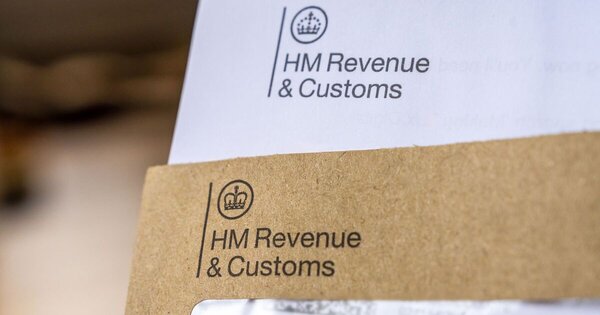Important to know
Most UK employees have their taxes sorted through PAYE (Pay As You Earn). Your employer deducts tax and National Insurance before paying your wages. This convenient system means many workers never need to complete a tax return.
However, not everyone gets off so easily. There are several situations where HMRC still expects you to submit a Self Assessment tax return, even when your main income comes through PAYE.
Our tax assistants at Pie, the UK's first personal tax app, can quickly check if you need to file based on your income sources. Or if you're just here to get to grips with it all, let's break it down!
When Can You Skip Filing a Tax Return?
For most employees with straightforward finances, PAYE handles everything. If your only income is from your job and tax is deducted automatically, you typically won’t need to file a tax return.
Your employer calculates and deducts the right amount of tax using your tax code. They then send this money directly to HMRC on your behalf. It’s a remarkably convenient system.
At the end of each tax year, you’ll receive a P60 form showing your earnings and tax paid for the last tax year. For most people, this document is simply for your records with no further action needed.
HMRC designed the PAYE system specifically to remove the burden of tax filing from ordinary employees. Unless something triggers a need for Self Assessment, your taxes are handled automatically.

When Do PAYE Employees Need to File?
While PAYE works brilliantly for straightforward situations, certain circumstances will trigger the need for a tax return. For example, if you receive other income, such as from savings, investments, or rental properties, you may need to submit a tax return. Here are the most common reasons:
Additional Income Sources
If you earn money outside your main job, you might need to file. This includes self-employment income over £1,000 or rental income above £1,000. For self-employment or rental income, you must report your profit after allowable expenditure.
Investment dividends exceeding the dividend allowance also require declaration. Income from savings interest above certain thresholds, as well as foreign income and capital gains not taxed through PAYE, generally need reporting. For some types of income, such as capital gains, you may need to set up a specific account with HMRC.
Even relatively small additional earnings can create filing requirements. It’s worth checking if you have multiple income streams to avoid penalties later.
High Income Scenarios
Earning over £100,000 from any source automatically triggers the need to file a tax return. This happens because your personal allowance starts to reduce at this point.
If you or your partner receive Child Benefit and either of you earns over £50,000, you'll need to file. This covers the High Income Child Benefit Charge that applies in these cases.
People with incomes over £125,140 lose their personal allowance entirely. They must file a return to ensure correct tax calculation on their full income.
Special Circumstances
Some work-related expenses exceeding £2,500 that haven’t been reimbursed need claiming via Self Assessment. I once had to file simply because I’d spent over £3,000 on required professional training.
If you’re making pension contributions and want to claim additional tax relief beyond what’s automatically applied, you’ll need to file. Pension income is often managed by your pension provider, who deducts tax before payments are made, but additional relief may require a Self Assessment return. This affects many higher-rate taxpayers.
Ministers of religion, those with complicated tax codes, or people with previous years’ tax issues may also need to complete a return. In these special cases, it’s important to ensure all required forms are submitted to avoid penalties. Sometimes, if you appeal or meet certain criteria, HMRC agree to cancel or waive filing requirements. These special cases often require individual attention.

How to Check If You Need to File
Not sure if your situation requires a tax return? Here are some ways to find out:
Call HMRC directly on their Self Assessment and explain your circumstances. They can tell you definitively if you need to file.
Check your post and emails for notices from HMRC. If they think you need to file, they’ll usually send you a notification letter. Use the GOV.UK website to check the current filing requirements. These are updated each tax year as thresholds and allowances change.
If you are a UK resident, you may have specific filing requirements, especially if you have sold UK property or have overseas income. When in doubt, it’s always better to check than risk penalties. HMRC can charge for late filing even if you don’t owe any additional tax!
Understanding Self Assessment Tax Returns
Self assessment tax returns are a key part of the UK tax system for anyone whose tax affairs go beyond straightforward employment. If you’re self employed, receive investment income, or earn money from renting property, you’ll likely need to complete a self assessment tax return each tax year. This process allows you to report all your income especially untaxed income that isn’t covered by the PAYE system directly to HM Revenue and Customs (HMRC).
A self assessment tax return is more than just a form; it’s your opportunity to declare your total income, calculate your income tax liability, and claim any tax relief you’re entitled to. For example, if you have property income from renting out a flat, or you receive income from investments, these earnings may not have had tax deducted at source. By completing an assessment tax return, you ensure HMRC has a full picture of your finances and can apply the correct tax code.

What Happens If You Don't File When Required?
If HMRC expects a tax return from you and you don’t submit one, you could face penalties. This applies even if you don’t owe any extra tax. Additionally, if you have overpaid tax, failing to file could mean missing out on a tax refund you are entitled to.
The standard late filing penalty starts at £100 and increases the longer you delay. After three months, you’ll be charged £10 per day up to a maximum of £900.
Beyond financial penalties, missing filings can trigger tax investigations. These are time-consuming and stressful even if your finances are in perfect order.
HMRC has sophisticated systems to identify people who should be filing returns. Taking chances with compliance rarely ends well for the taxpayer.
Final Thoughts
For most people paid through PAYE, the tax system works smoothly without additional paperwork. Your employer handles calculations and payments, making tax fairly painless.
It's worth checking your situation annually to see if anything has changed. Additional income, high earnings, or special circumstances can all create the need for a tax return.
When in doubt, it's always better to check with HMRC or a tax professional. This approach costs less than risking penalties for non-compliance.

Pie: Simplifying PAYE Tax Returns
Figuring out whether you need to file a tax return shouldn't be complicated. Pie, the UK's first personal tax app, scans your income sources and tells you instantly if you need to file.
We connect directly to your PAYE income through HMRC and automatically factor in additional earnings. This gives you a real-time view of your tax position throughout the year.
Our smart alerts notify you when you're approaching thresholds that might trigger filing requirements. You'll avoid surprises at tax time with our proactive monitoring.
For those who do need to file, we make the process straightforward. We pre-populate your return with PAYE information and guide you through any additional sections.
Want to see how it works? The Pie app is available to download now, giving you peace of mind about your tax situation all year round.











